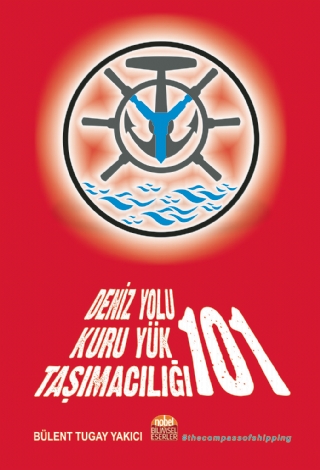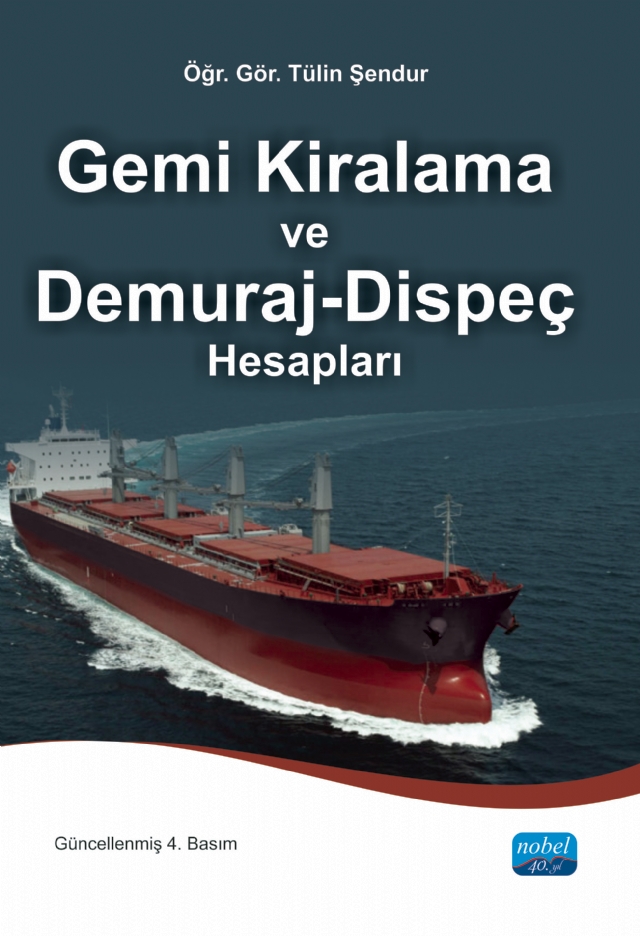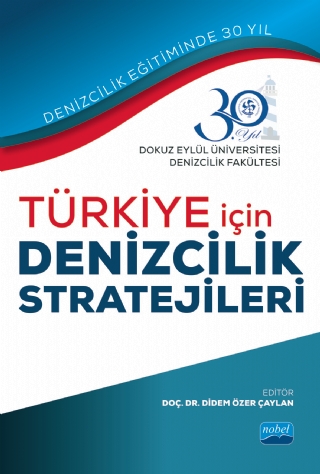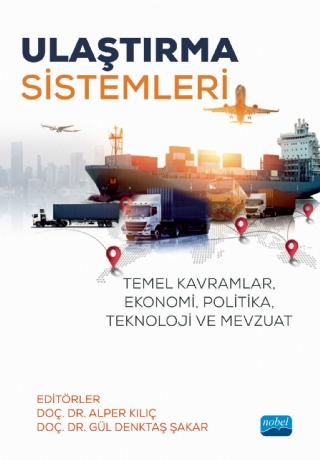Maritime Management \ 1-1

Today, global and regional actors realize their economic, political, cultural and security initiatives and orientations to a large extent through maritime transport lines. In this respect, the seas and sea routes have become an important element of geopolitical competition.
The Mediterranean is a sea of increasing geopolitical and geostrategic importance. It is one of the most important crossroads of international trade. The Mediterranean, which connects the continents of Asia, Europe and Africa, is the focal point of the maritime transport lines stretching to the Indian Ocean and Far East countries via the Suez Canal on the one hand, and to the Atlantic and North and South American countries via the Strait of Gibraltar on the other hand.
The Mediterranean's position in terms of energy is increasing the power race and geoeconomic competition on the world scale over the Mediterranean.
The Mediterranean gives a new dimension and a new orientation to Euro-Atlantic security, and due to its geopolitical position, it directly affects the security dynamics of European, Middle Eastern, North African and Far Eastern countries.
In our country, the necessity of preparing a multidimensional and rich research work on the Mediterranean and presenting it to the service of science has emerged.
The work named Mediterranean Geopolitics has been prepared with the idea of clarifying current issues related to the Mediterranean, determining new orientations and approaches for the future, and adding depth and richness to the field of science.
The Mediterranean is a sea of increasing geopolitical and geostrategic importance. It is one of the most important crossroads of international trade. The Mediterranean, which connects the continents of Asia, Europe and Africa, is the focal point of the maritime transport lines stretching to the Indian Ocean and Far East countries via the Suez Canal on the one hand, and to the Atlantic and North and South American countries via the Strait of Gibraltar on the other hand.
The Mediterranean's position in terms of energy is increasing the power race and geoeconomic competition on the world scale over the Mediterranean.
The Mediterranean gives a new dimension and a new orientation to Euro-Atlantic security, and due to its geopolitical position, it directly affects the security dynamics of European, Middle Eastern, North African and Far Eastern countries.
In our country, the necessity of preparing a multidimensional and rich research work on the Mediterranean and presenting it to the service of science has emerged.
The work named Mediterranean Geopolitics has been prepared with the idea of clarifying current issues related to the Mediterranean, determining new orientations and approaches for the future, and adding depth and richness to the field of science.

Maritime transport; It is a type of transportation from port to port in return for a certain price, carried out within the framework of international maritime trade laws and contracts, based on the carriage contract concluded between the shipper and the carrier with cargo and passenger ships.
The fact that 3/4 of the world and also our country is surrounded by water is naturally an important factor in the expansion of maritime transport.
The cargoes, equipment, ship types and companies/parties participating in the operation process vary in this transportation method.
For a healthy and efficient operation process, a good command of the relevant literature and the experience gained in the subject operation areas are among the main factors that are effective.
Logistics operations were needed in the process until the delivery point of the buyer company, based on the demands of the owners of the dry cargo products, which are the subject of trade and in tonnages that cannot be transported by containers. Some problems were encountered in freight payment and port integrated logistics operations in operations and a need for solution suggestions arose. The methods applied in this direction, the companies participating in the process, the freight payment, the problems encountered in Mersin International Port as a pilot region, and solution suggestions, as well as other necessary information are presented in detail.
The fact that 3/4 of the world and also our country is surrounded by water is naturally an important factor in the expansion of maritime transport.
The cargoes, equipment, ship types and companies/parties participating in the operation process vary in this transportation method.
For a healthy and efficient operation process, a good command of the relevant literature and the experience gained in the subject operation areas are among the main factors that are effective.
Logistics operations were needed in the process until the delivery point of the buyer company, based on the demands of the owners of the dry cargo products, which are the subject of trade and in tonnages that cannot be transported by containers. Some problems were encountered in freight payment and port integrated logistics operations in operations and a need for solution suggestions arose. The methods applied in this direction, the companies participating in the process, the freight payment, the problems encountered in Mersin International Port as a pilot region, and solution suggestions, as well as other necessary information are presented in detail.

World trade is an indispensable element for the needs, quality of life and welfare of humanity, and the indispensable part of world trade is transportation systems, which are the most important part of the logistics sector. Maritime transport is the only option as the cheapest freight transport in transportation systems, in intercontinental distances, in large volumes. Today, 90% of world trade is carried out by sea.
In the first part of the book, general features of maritime transport, maritime transport in the world and in Turkey, fleet analysis, maritime transport types, cargo and ship types, freight market, international maritime organizations, in the second part, ship chartering and commercial operation, charter agreements and freight In the third part, a research and solution proposals for the determination of the ship management problems in dry cargo transportation in Turkey, in the fourth part; In order to ensure trouble-free ship management, a case study analysis of the connection and operation stages of a dry cargo ship is included, and in the fifth section, sample applications on demurrage-dispatch calculations are given.
Due to the fact that ship management is an international and specific business, English professional abbreviations and jargon are used as the language of correspondence, even if the parties are Turkish companies during the chartering process and ship operation, which is called ship connection. Subjects such as ship management and brokerage, which have been taught in universities in London since the beginning of the 1900s, have only been partly taught in the logistics departments of our universities in recent years. Considering that it can be a good resource as a desktop vocational guide book for both university students and employees who have just stepped into the sector, English professional abbreviations and jargon are used in the correspondence between the parties in the case study analysis, and the English abbreviation of the abbreviations and their Turkish translation are included in parentheses.
In the first part of the book, general features of maritime transport, maritime transport in the world and in Turkey, fleet analysis, maritime transport types, cargo and ship types, freight market, international maritime organizations, in the second part, ship chartering and commercial operation, charter agreements and freight In the third part, a research and solution proposals for the determination of the ship management problems in dry cargo transportation in Turkey, in the fourth part; In order to ensure trouble-free ship management, a case study analysis of the connection and operation stages of a dry cargo ship is included, and in the fifth section, sample applications on demurrage-dispatch calculations are given.
Due to the fact that ship management is an international and specific business, English professional abbreviations and jargon are used as the language of correspondence, even if the parties are Turkish companies during the chartering process and ship operation, which is called ship connection. Subjects such as ship management and brokerage, which have been taught in universities in London since the beginning of the 1900s, have only been partly taught in the logistics departments of our universities in recent years. Considering that it can be a good resource as a desktop vocational guide book for both university students and employees who have just stepped into the sector, English professional abbreviations and jargon are used in the correspondence between the parties in the case study analysis, and the English abbreviation of the abbreviations and their Turkish translation are included in parentheses.

This work, which was created with the contributions of Maritime Management, Maritime Transportation Management Engineering, Ship Machinery Management Engineering and Logistics Management departments to commemorate Dokuz Eylul University Maritime Faculty's 30th year in maritime education, presents different perspectives on maritime strategies, the importance of which is increasing day by day in Turkey. consists of upcoming research and is presented in 20 chapters.
The developments that are the benefits of the technology age we live in and the hardening competitive environment have increased the necessity of comprehensive academic studies in the field of maritime, as in many other fields. In this context, the book it is foreseen that it will appeal to a wide readership in the fields of transportation, maritime and logistics. Researchers and academicians working on the aforementioned subjects, undergraduate, graduate and doctoral students, public and private sector officials, and anyone who wants to conduct research in the fields of transportation, maritime and logistics and who are interested in this field constitute the main readership of the book.
The developments that are the benefits of the technology age we live in and the hardening competitive environment have increased the necessity of comprehensive academic studies in the field of maritime, as in many other fields. In this context, the book it is foreseen that it will appeal to a wide readership in the fields of transportation, maritime and logistics. Researchers and academicians working on the aforementioned subjects, undergraduate, graduate and doctoral students, public and private sector officials, and anyone who wants to conduct research in the fields of transportation, maritime and logistics and who are interested in this field constitute the main readership of the book.

The concept of transportation has gone through various processes from the time of human existence to the present. In addition to being a component that constitutes a significant part of the cost within the framework of logistics management, both in passenger and freight transportation, it has also been a variable that significantly affects the effectiveness and efficiency of logistics processes. From this point of view, the concept of transportation and transportation systems continue to be an interesting subject for both practitioners and academics. Considering the foreign and local publications, it is seen that the publications within the scope of logistics and supply chain management are quite numerous, but the publications in the field of transportation systems and transportation management are very limited in number and content. The main reason for this is that countries offer local publications to the relevant audience within the framework of their own practices. It is thought that this publication, named Transportation Systems, will fill an important need especially in the literature written in Turkish. Since transportation systems should be evaluated from a multi-disciplinary perspective, the following main components required in the field of transportation systems are included in the book and presented to the attention of students, researchers, sector representatives and administrative units:
• Basic concepts of transportation,
• History of transportation,
• Transportation geography,
• actors and parties in transport,
• Transportation activities and components,
• Types of transportation,
• Integration of transportation modes,
• Loads that require special handling in transportation,
• Transportation economy,
• Transport statistics in Turkey and in the world,
• Transportation costs,
• Financial decisions in transportation businesses,
• Legal arrangements in the field of transportation,
• Safety and security in transportation,
• Sustainability and environment in transportation,
• Numerical methods in transportation systems,
• Recent developments in transportation and Turkey's transportation policies.
• Basic concepts of transportation,
• History of transportation,
• Transportation geography,
• actors and parties in transport,
• Transportation activities and components,
• Types of transportation,
• Integration of transportation modes,
• Loads that require special handling in transportation,
• Transportation economy,
• Transport statistics in Turkey and in the world,
• Transportation costs,
• Financial decisions in transportation businesses,
• Legal arrangements in the field of transportation,
• Safety and security in transportation,
• Sustainability and environment in transportation,
• Numerical methods in transportation systems,
• Recent developments in transportation and Turkey's transportation policies.

Whoever dominates the sea, dominates the world”.
Barbaros Hayreddin Pasha (1478-1546)
Human history is unthinkable without seas and oceans. The oceans or seas are at the heart of strategies for world domination. Moreover, they are areas that affect the destinies of states.
The law of the sea, which is important for the grand strategies of states, has come to a position that makes its importance felt in the world today with its increasing importance as a part of international public law over the last 20 years. The increasing importance of the law of the sea is mostly due to the fact that tensions arise after the overlapping demands of the coastal states, which sometimes reach the brink of war.
Turkey's right to determine its own maritime jurisdiction areas and to claim its sovereign rights in the Mediterranean, the Sea of Islands or the Black Sea, as elsewhere in the world, derives entirely from the customary law formed by the law of the sea. The problems in the Mediterranean are also seen more clearly with the attitudes of countries such as Greece, which ignore the principles of maritime law.
This work has been written to contribute to the studies carried out in order to advance the struggle in Turkish maritime jurisdictions on a scientific basis. The public law dimension of Turkish maritime jurisdictions is critical and of primary importance in foreign policy.
With the hope that everyone who is interested will read this work, which is the beginning of the steps to be taken regarding the establishment of the legal and technical regime, with excitement and curiosity...
Barbaros Hayreddin Pasha (1478-1546)
Human history is unthinkable without seas and oceans. The oceans or seas are at the heart of strategies for world domination. Moreover, they are areas that affect the destinies of states.
The law of the sea, which is important for the grand strategies of states, has come to a position that makes its importance felt in the world today with its increasing importance as a part of international public law over the last 20 years. The increasing importance of the law of the sea is mostly due to the fact that tensions arise after the overlapping demands of the coastal states, which sometimes reach the brink of war.
Turkey's right to determine its own maritime jurisdiction areas and to claim its sovereign rights in the Mediterranean, the Sea of Islands or the Black Sea, as elsewhere in the world, derives entirely from the customary law formed by the law of the sea. The problems in the Mediterranean are also seen more clearly with the attitudes of countries such as Greece, which ignore the principles of maritime law.
This work has been written to contribute to the studies carried out in order to advance the struggle in Turkish maritime jurisdictions on a scientific basis. The public law dimension of Turkish maritime jurisdictions is critical and of primary importance in foreign policy.
With the hope that everyone who is interested will read this work, which is the beginning of the steps to be taken regarding the establishment of the legal and technical regime, with excitement and curiosity...